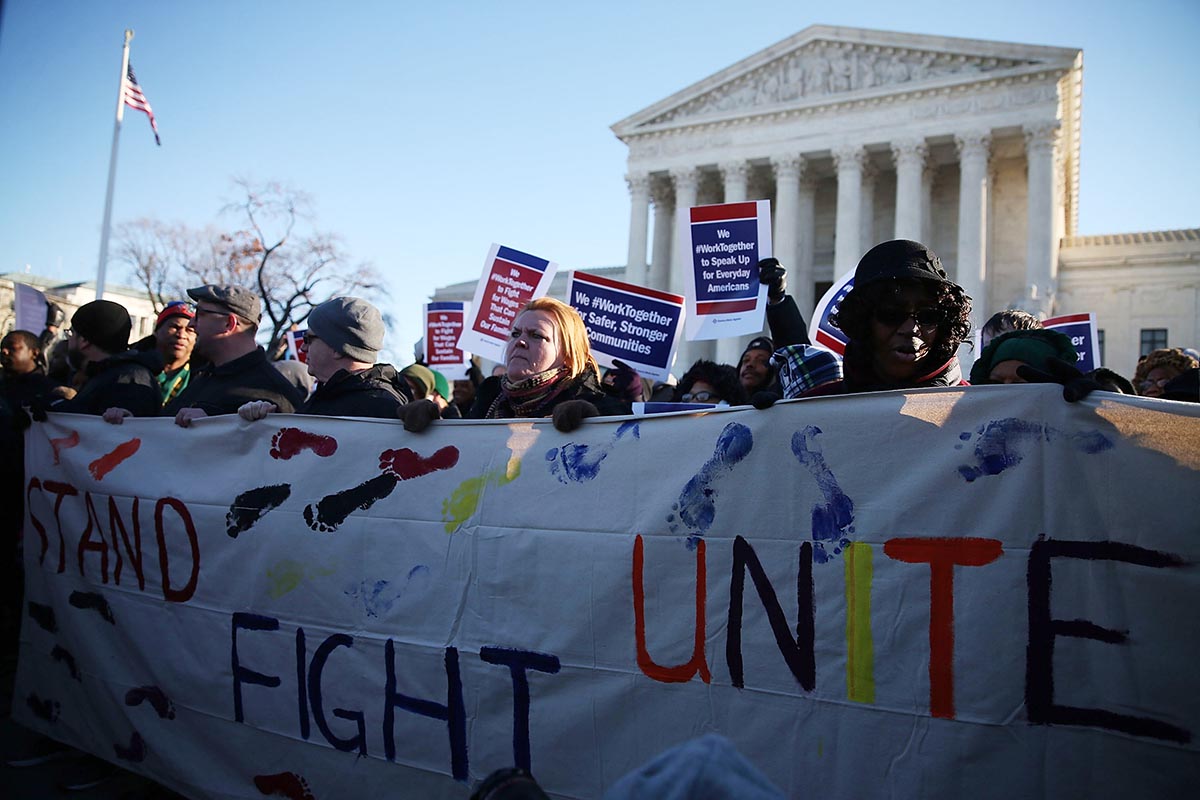Public unions are among California’s most powerful political forces. Whether you support them or not, they’ve driven up public employees’ wages and benefits and contributed to California’s massive debt and unfunded liabilities, all of which has helped to make the Golden State one of the most expensive in the union.
Yet thanks to an Illinois-state employee named Mark Janus, some relief may be in sight — for California taxpayers, lawmakers and independent-minded public employees alike.
The Supreme Court will soon hear arguments in Janus v. AFSCME 31. At issue are the free speech rights of public employees forced to pay union “agency fees” for representing them in collective bargaining, whether or not they join the union. Mr. Janus argues that agency fees oblige him to subsidize union political activity with which he disagrees. Such compelled speech, he contends, violates his First Amendment rights.
“If the Supreme Court rules in favor of Mr. Janus... public unions stand to lose political power”
If the Supreme Court rules in favor of Mr. Janus — which most expect it will with Justice Neil Gorsuch now on the bench — public unions stand to lose political power. But California lawmakers (and those in other states) might thereby gain the breathing room they need to better adapt to federal tax reform and, more generally, get their fiscal house in order.
The case is in many respects a rerun of 2016’s Friedrichs v. California Teachers Association, which the court deadlocked in a 4-4 vote after Justice Antonin Scalia’s untimely death. As it stands now, workers who don’t want to contribute to union politics must first refuse to join the union and then write an annual letter declaring themselves “objectors” to its political activities. The union then decides what percentage of the worker’s fees it spent on collective bargaining and what percentage on politics, and reimburses that worker for the latter. If a worker fails to write the annual letter — for any reason — he or she will pay for union politics.
The problem, critics like Mr. Janus contend, is that collective bargaining with government is inherently political. Subjects of negotiation, such as wages and benefits, are ultimately political decisions about how much to compensate public servants. Therefore, the positions a union takes in collective bargaining are ultimately political positions. Forcing all workers to support them violates the rights of those who disagree.
Another problem, as Justice Samuel Alito has pointed out, is that in the public sector, collective bargaining and political activity are both directed at the government, making it nearly impossible to draw a clear line between them. Even if a clear line could be drawn, money is fungible, which means that dollars designated for non-political purposes can free up other monies for political activity. In that light, forced fees always violate First Amendment prohibitions on compelled speech.
If a Supreme Court majority accepts these arguments, it will strike down laws in 22 states, including California. As a result, public workers will no longer have to pay public unions as a condition of employment.
On the books for some 40 years, “agency fee” laws have been a boon to public employee unions. Because the fees are often set at nearly the same amount as dues, many workers just assent to joining the union. Forced fees thus inflate union membership and money.
Consequently, public employee unions have become political powerhouses in states and cities where forced fees are legal. In California, for example, between 2000 and 2010 the California Teachers Association spent over $210 million on political campaigns — more than any other contributor in the state and more than the pharmaceutical, oil and tobacco industries combined. And that was just one of the state’s many public unions.
“Public employee unions have become political powerhouses in states and cities where forced fees are legal.”
As a result, California’s elected officials often accede to unions’ demands for higher pay, better benefits and more job protections. The result is more expensive government. To cover those inflated costs, California’s income and sales taxes are among the highest in the nation. But the recent federal tax reform, which caps the state and local tax deduction at $10,000, will make raising taxes more difficult in the future. Already under pressure from its rising pension costs, the state’s fiscal flexibility is diminishing.
Yet, if the Supreme Court declares agency fees unconstitutional, some pressure might be taken off California’s politicians. Unions in California and elsewhere would see their memberships and revenues decline. Some workers will stop paying for politics with which they disagree. Others will conclude that union representation just isn’t worth the cost.
Bringing union strength more closely in line with public workers’ real desires would reduce union political power. Over the long term, such a rebalancing may also have the salutary effect of allowing politicians to make the difficult decisions needed for sustainable fiscal policy. That would be good news for California, and state houses across the country.
This piece originally appeared at the Orange County Register
______________________
Daniel DiSalvo is a senior fellow at the Manhattan Institute and associate professor of political science at the City College Of New York (CUNY). Follow him on Twitter here.
This piece originally appeared in Orange County Register
